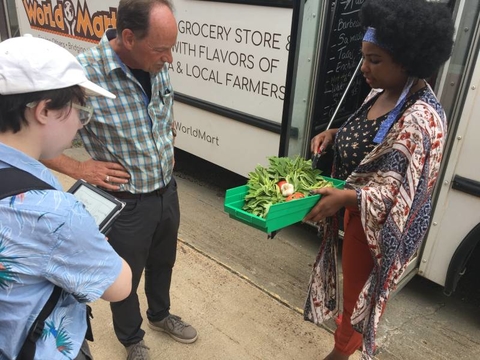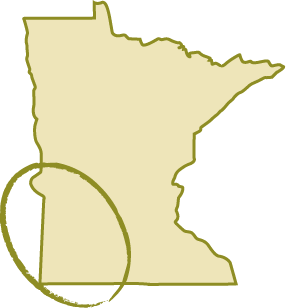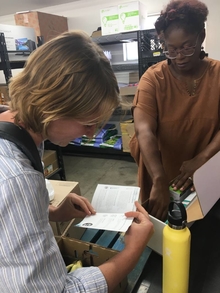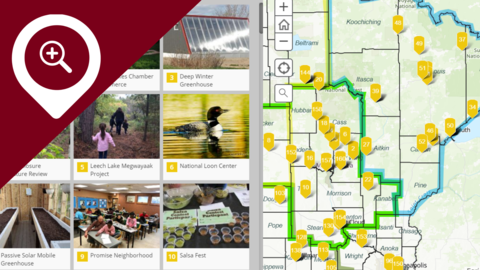Southwest RSDP
Southwest RSDP
The University of Minnesota Extension Southwest Regional Sustainable Development Partnership (Southwest RSDP) works with community members across the region to create and sustain healthy ecosystems, strong local economies and vibrant, self-reliant rural towns. We launch education and research that help people understand and achieve sustainability across southwestern Minnesota. We support projects that demonstrate public purpose and build partnerships with residents of the region.
More information
The Southwest region includes the counties of Big Stone, Brown, Chippewa, Cottonwood, Douglas, Grant, Jackson, Kandiyohi, Lac qui Parle, Lincoln, Lyon, Martin, McLeod, Meeker, Murray, Nobles, Pipestone, Pope, Redwood, Sibley, Renville, Rock, Stevens, Swift, Traverse, Watonwan and Yellow Medicine, and shares geography with the Upper Sioux and Lower Sioux sovereign Native nations.
Southwest RSDP has been serving rural Minnesota for two decades. From 1998 through 2011, the West Central RSDP operated as a 12-county region. The geographic region was expanded in 2012 to include all counties in the southwest part of Minnesota, and the program renamed Southwest RSDP. New members of the board of directors were elected to represent the newly included counties.
The Mary J. Page Community-University Partnerships Fund honors former Olivia Mayor, Renville County Commissioner and University of Minnesota Regent Mary Page for her contributions to community-driven sustainability projects across Southwest Minnesota and beyond. Mary helped create, and then served on, the founding board of the West Central RSDP from 1999-2007, and gave statewide leadership to RSDP until 2009.
Reducing the burden of energy costs for food shelf shoppers
Neighbors United Resource Center in Granite Falls has been working with volunteers and shoppers to reduce the burden of energy costs. In partnership with the City of Granite Falls Municipal Utilities, Neighbors United ordered home energy conservation kits to distribute to shoppers. The kits include items like energy efficient light bulbs, low-flow sink kits to reduce hot water consumption, and more.
Opportunity: Take action and help build a more climate-resilient Minnesota
Southwest Regional Sustainable Development Partnership needs Sustainability Project Coordinators in 2024-2025 to advance local resilience efforts in our region. We’re looking for great people and hope you will consider applying or helping us spread the word.
Across Minnesota, we are experiencing higher temperatures, more extreme weather, flooding, and changes in our ecosystem. By giving your time and talent as a Project Coordinator, you can be part of a movement to achieve the long-term goals of creating a carbon-neutral, resilient, and equitable future for Minnesota. In this role, you can engage communities, have an opportunity to develop new skills, and advance tangible sustainability projects.
To learn more or apply, visit the Ampact website. Thank you for helping us leverage this incredible opportunity!
Southwest RSDP board members
- Laura DeBeer, laura.debeer@state.mn.us - Marshall, MN
- Sara Gronfeld, sara.gronfeld@mn.nacdnet.net - Johnson, MN
- Michele Huggins, doughpcreations@outlook.com - Granite Falls, MN
- Eric L'Abbé, eric@ericrathman.com - Worthington, MN
- David Lieser, kada@charter.net - Montevideo, MN
- Sara Sietsema, ssietsema@willmarmn.gov - Willmar, MN
- Becky Yust, byust@umn.edu - St. Paul, MN
- Charlene Graff, cgraff@2harvest.org - Lamberton, MN
- Clement Loo, cloo@morris.umn.edu - Morris, MN
- Knute Oldre, knute.oldre@bankwithssb.com - Luverne, MN






